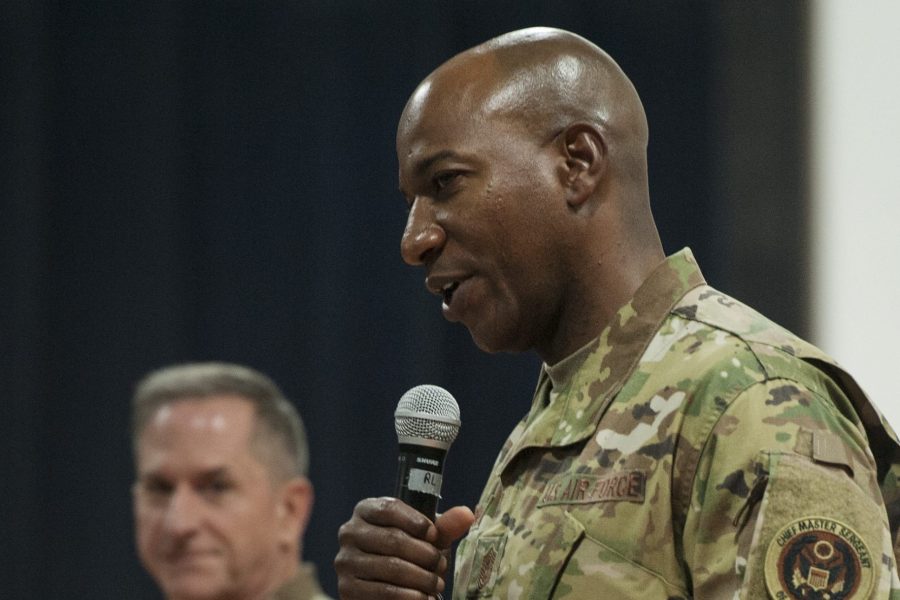The Department of the Air Force is tackling the issue of systemic racism in the same way as it does many others: by standing up a task force.
The Diversity and Inclusion Task Force, created June 9, will look at how racial, ethnic, and other demographic disparities affect the Air Force and Space Force, USAF said in a July 8 release. A group of Airmen from various demographic groups and at different ranks are mulling the policies, procedures, and other barriers that keep minority Airmen from advancing through the ranks and from feeling included in their units.
Members are focusing on five areas: culture and policy; education, training, and testing; recruiting and accessions; workforce diversity; and aircrew diversity.
“We have to acknowledge our Air and Space Forces are not immune from racism and the challenges of inequity,” Lt. Gen. Brian T. Kelly, deputy chief of staff for manpower, personnel, and services, said in the release. “As a force that depends on unity, inclusion, and a common strength of purpose, we are committed to being better every day until all within our ranks feel a true sense of belonging that allows them to maximize their talents.”
Their work comes as the Air Force Inspector General is also studying racial disparities in the promotion and military justice systems, which disproportionately advance white Airmen and punish young Black Airmen. While the IG is working on long-term systemic and cultural problems and solutions, the task force is geared toward short-term fixes.
The task force has already notched some progress, according to the release.
First, it is boosting scholarship opportunities for nearly 300 current and future Reserve Officer Training Corps cadets at historically black colleges and universities, as well as schools where at least 25 percent of full-time undergraduates are Hispanic.
“The qualified recipients will receive a full-ride scholarship with full tuition and fees paid starting in the 2020-21 school year,” the service said. “The move is intended to increase minority representation in the officer ranks, something the Air Force has struggled with. Currently, racial and ethnic minorities make up 40 percent of the U.S. population but only 24 percent of the officer corps.”
Second, the service revised certain rules on dress and appearance to remove wording that could disadvantage people of color based on their complexion, to allow men to wear their hair parted, and to green-light name tapes with diacritical markings to help with pronunciation. It also allows Airmen to get a five-year shaving waiver for a pseudofolliculitis barbae diagnosis, instead of requiring an annual update or making people shave when they move to a new duty location.
“Members who had been previously diagnosed with PFB were required to get a new waiver when they moved or deployed, forcing them to shave and aggravate their skin condition or have limited duties while they awaited a new medical appointment,” the Air Force said. “This change is intended to eliminate the burdensome waiver process that was negatively impacting minority members, as PFB more frequently occurs in Black/African American males, and it also allows more time for the skin to heal properly.”
The task force is also starting the process of revamping training to teach Airmen about unconscious bias. They are “assembling options for department leaders to determine their intent for how training will be rolled out to the forces over the coming months and years, and at what touchpoints in the talent management lifecycle of Airmen and space professionals that training will be most effective,” according to the release.
The Air Force will roll out a new video that shows people how to avoid those biases and treat others more fairly, and is enrolling several people in a diversity and inclusion certificate program run by Cornell University so they can share what they learn with their own teams.
Black Airmen recently told Air Force Magazine the Department of the Air Force should foster an environment where people feel free to report discrimination and discuss issues of race with their colleagues, and that instances of subtle racism still arise in everyday military life.
They hope the service’s push to address systemic racism, spurred by the recent deaths of Black Americans and the personal stories of Black Air Force leaders, will lead to greater understanding of what minorities experience and changes to the underlying issues that prevent broader equality.
“We have a list of items to tackle, but we are listening and we hear you,” Brig. Gen. Troy E. Dunn, Air Force director of military force policy and the task force’s director, said in the release. “We will not rest until our Airmen and space professionals feel like they truly belong and are thriving in an organization that values diversity and equality.”
